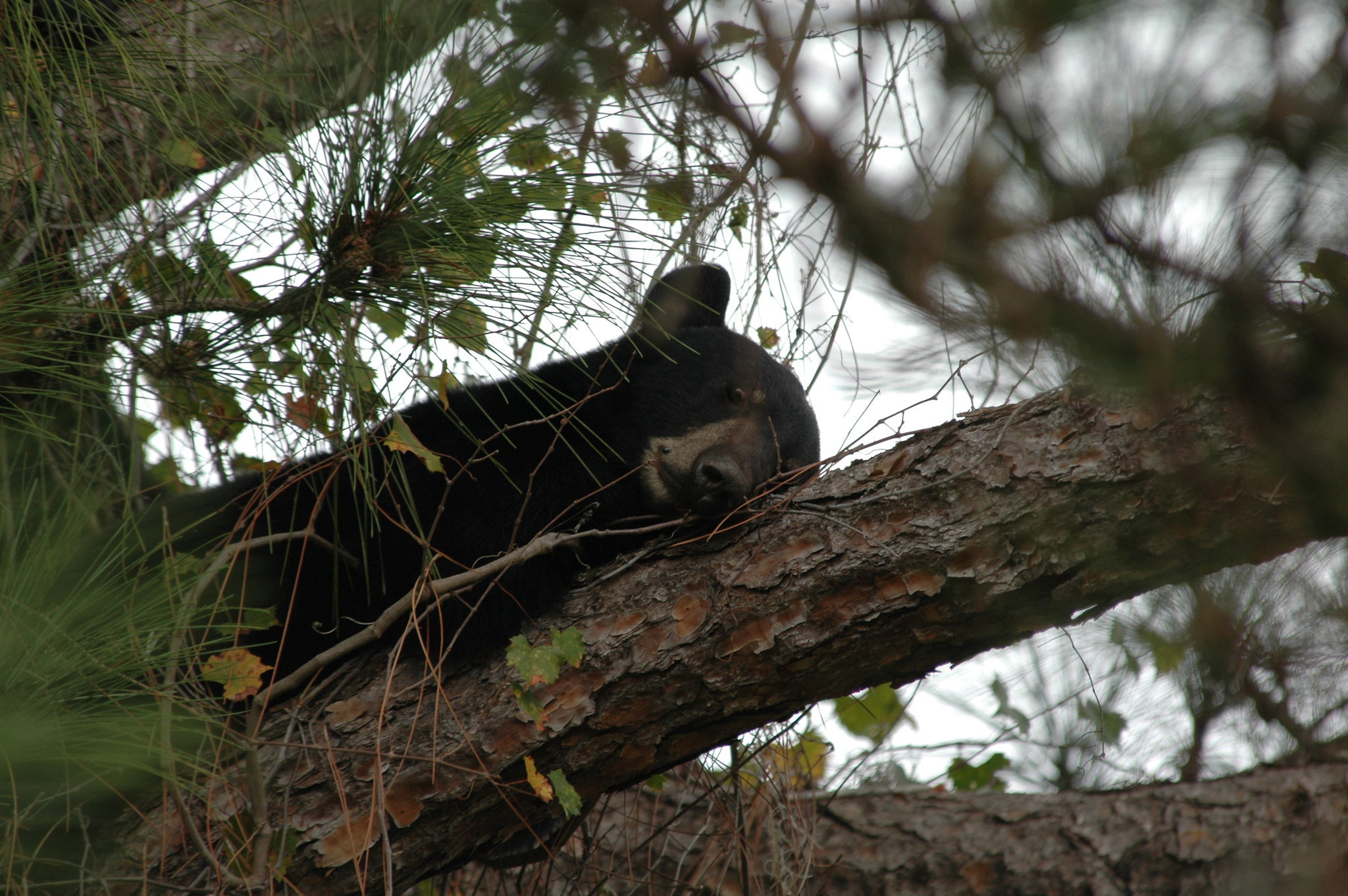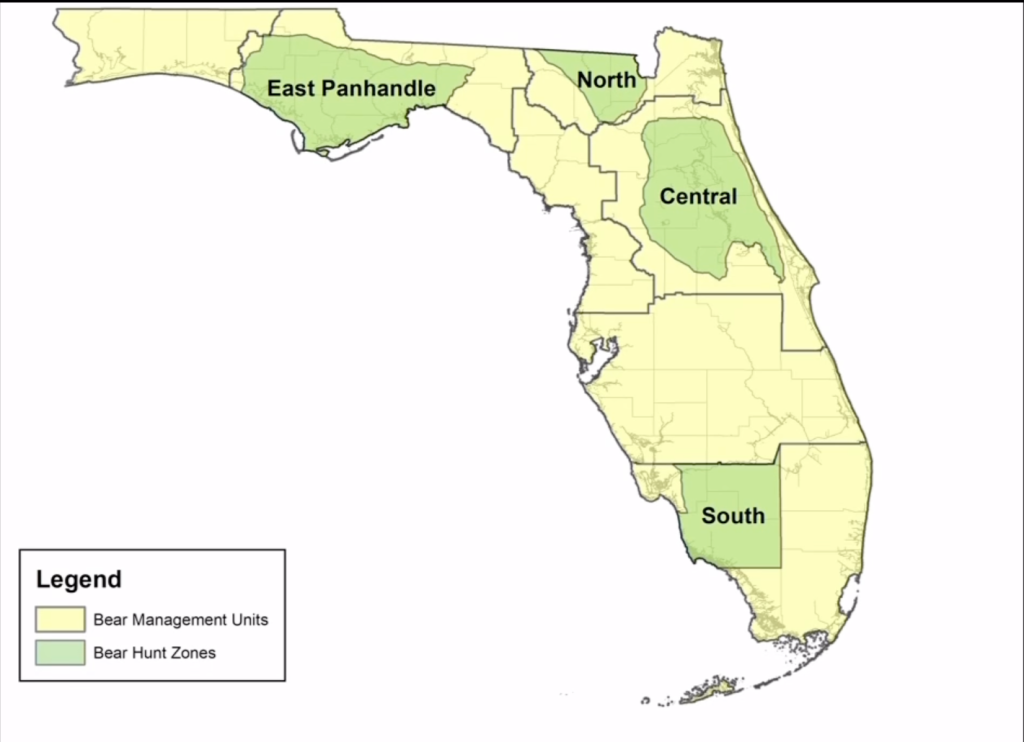
Photo by Florida Fish and Wildlife Conservation Commission via Flickr

Audio By Carbonatix
A state-sanctioned hunt to slash rising human-bear interactions may be predicated on a false belief that Florida black bear populations have been growing, according to newly released research from the Florida Fish and Wildlife Commission (FWC). A preliminary look at FWC’s decennial black bear census, released by the same state authority to unanimously approve the hunt, indicates black bear numbers in the Osceola region decreased by nearly 66 percent over the past decade — in sharp contrast to arguments from proponents of the upcoming hunt.
The region, which encompasses the Osceola National Forest between Tallahassee, Jacksonville, and Gainesville in north Florida, serves as an indicator for populations across the state, Rhonda Roff, conservation chair for the Sierra Club Calusa Group, wrote in a statement. FWC researchers found black bear density in the region dropped from about 0.12 bears per square kilometer in 2014 to 0.04 in 2024, representing an estimated decline from around 500 to 167 bears. The data comes from a preliminary release of FWC’s decennial Florida black bear census (attached at the bottom of this story), which the agency shared with bear conservation groups.
“The FWC uses population models to set harvest quotas, but those models are now based on data collected a decade ago — and the Osceola numbers show that the real world is diverging sharply from their projections,” she said in a statement to New Times. “The steep decline in Osceola — one of Florida’s most forested and least-developed bear management units — suggests bear populations are far more vulnerable than the models indicated.”
Despite pleas from animal advocates to wait for the FWC to complete its bear census before sanctioning a hunt, the agency’s board unanimously approved a hunt in August to issue 187 permits to kill black bears at four approved sites across the state. The hunt is scheduled to run from December 6 to 28 and has attracted more than 100,000 applications from over 12,000 applicants. This will be the first black bear hunt in Florida since 2015.
FWC didn’t return New Times‘ calls or emails seeking comment.

FWC
Many opponents loudly pushed back against the hunt during the August meeting, arguing approved rules, including dog-hunting teams, baiting, and archery, were barbaric and came with significant drawbacks. Proponents of the hunt argue that black bear encounters have become increasingly common in recent years, and a regulated hunt will keep their population in check, decreasing unwanted bear-human encounters. FWC’s newly released data, however, seems to indicate populations statewide could actually be declining.
“The Osceola bear management unit functions as a bellwether,” Roff said. “If a core forecast population with relatively intact habitat has lost two-thirds of its density in a decade, the outlook for a smaller, more fragmented bear management units — such as those in the central and east panhandle regions — could be even worse.
“Yet FWC has not completed updated DNA-based population estimates for the remaining bear management units. In other words, the state is flying blind.”
New Times has yet to hear back from the FWC on a request for statewide data on black bear encounters with humans. FWC has a black bear sighting map on its website, showing encounters over the past five years, but the underlying data is not available.
Some experts argue that a hunt wouldn’t solve bear-human encounters.
“Human-bear conflicts will still need to be managed independently — hunting doesn’t accomplish that,” FWC chief conservation officer George Warthen said in a statement. “Educating the public on preventative steps like securing attractants on their property or using bear-resistant trash cans will remain vital to reducing conflicts.”